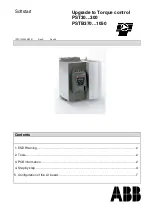
17-11
ATM Switch Router Software Configuration Guide
OL-7396-01
Chapter 17
Configuring Signalling Features
Configuring Signalling Diagnostics Tables
Example
The following example shows how to display the E.164 translation table configuration:
Switch#
more system:running-config
Building configuration...
Current configuration:
!
version XX.X
no service pad
service udp-small-servers
service tcp-small-servers
!
hostname Switch
!
atm e164 translation-table
e164 address 1111111 nsap-address 11.111111111111111111111111.112233445566.11
e164 address 2222222 nsap-address 22.222222222222222222222222.112233445566.22
e164 address 3333333 nsap-address 33.333333333333333333333333.112233445566.33
!
atm service-category-limit cbr 64544
atm service-category-limit vbr-rt 64544
atm service-category-limit vbr-nrt 64544
atm service-category-limit abr-ubr 64544
atm address 47.0091.8100.0000.0040.0b0a.2b81.0040.0b0a.2b81.00
!
<information deleted>
Example
The following example shows how to display the E.164 configuration for ATM interface 0/0/1:
Switch#
show atm interface atm 0/0/1
Interface: ATM0/0/1 Port-type: oc3suni
IF Status: DOWN Admin Status: administratively down
Auto-config: enabled AutoCfgState: waiting for response from peer
IF-Side: Network IF-type: UNI
Uni-type: Private Uni-version: V3.0
Max-VPI-bits: 8 Max-VCI-bits: 14
Max-VP: 255 Max-VC: 16383
ConfMaxSvpcVpi: 255 CurrMaxSvpcVpi: 255
ConfMaxSvccVpi: 255 CurrMaxSvccVpi: 255
ConfMinSvccVci: 35 CurrMinSvccVci: 35
Svc Upc Intent: pass Signalling: Enabled
ATM Address for Soft VC: 47.9999.9999.0000.0000.0000.0216.4000.0c80.0010.00
ATM E164 Translation Interface
Configured virtual links:
PVCLs SoftVCLs SVCLs PVPLs SoftVPLs SVPLs Total-Cfgd Installed-Conns
2 0 0 0 0 0 2 0
Logical ports(VP-tunnels): 0
Input cells: 0 Output cells: 0
5 minute input rate: 0 bits/sec, 0 cells/sec
5 minute output rate: 0 bits/sec, 0 cells/sec
Input AAL5 pkts: 0, Output AAL5 pkts: 0, AAL5 crc errors: 0
Configuring Signalling Diagnostics Tables
Signalling diagnostics enable you to diagnose a specific call failure in your network and pinpoint the
location of the call failure along with the reason for the failure. To do this, you must configure a
signalling diagnostics table that stores the filtering criteria and a filter index, an integer value between
















































